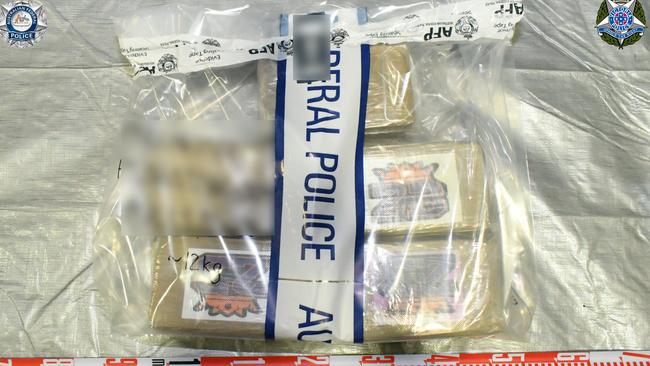Cocaine use spiked in Melbourne as Covid restrictions eased, ACIC data confirms
Wastewater analysis reveals cocaine use soared in Melbourne as the Andrews government began easing Covid restrictions.
Police & Courts
Don't miss out on the headlines from Police & Courts. Followed categories will be added to My News.
Melbourne cocaine users again went on a massive binge when the state government scrapped most of its Covid restrictions late last year, criminal intelligence data shows.
Wastewater testing commissioned by the Australian Criminal Intelligence Commission showed a spike in cocaine use in Melbourne beginning late in 2021, as the Andrews government began easing Covid restrictions.
The spike in cocaine residue in Melbourne’s waste water peaked in December 2021, as pubs, night clubs, strip joints and gaming venues largely returned to business-as-usual, and as border restrictions eased, making it easier for traffickers to send drugs from interstate.


ACIC chief executive Michael Phelan said his agency had long been studying the impact of Covid restrictions on drug use, and said the latest data “adds further detail to the (intelligence) picture.”
The commission will later this year release an annual report on illicit drugs, which is expected to show a dramatic increase in the street price of cocaine in the past year, which, combined with the surge in surge in demand last December, prompted dealers on an encrypted chat group to joke that Melbourne as experiencing its first “white Christmas”.
The ACIC report’s authors said it was now clear “Covid-related border, travel and association restrictions” had a dramatic effect on drug availability.
The authors warned there were “early signs” the use of “illicit stimulants” including cocaine, were returning to pre-pandemic levels.
The ACIC and other law enforcement agencies have long known the first set of Covid restrictions, which were introduced nationally in April 2020 and included a snap international border closure, led to a dramatic decline in Australians’ drug use.

The disruption to global shipping and restrictions on domestic travel also posed major challenges for drug traffickers, with the vast majority of illicit drugs sold locally being imported from Europe, Asia or the Central America.
The ACIC reports authors warned the Australian drug market is “resilient” and that “organised crime groups continue to find ways to supply the major illicit drug markets, generating significant illicit revenue,” the report says.
The ACIC’s testing program involves monitoring waste water plants around Australia in “near-real-time”, allowing law enforcement agencies to closely monitor in drug markets in capital cities and regional towns as they happen.





